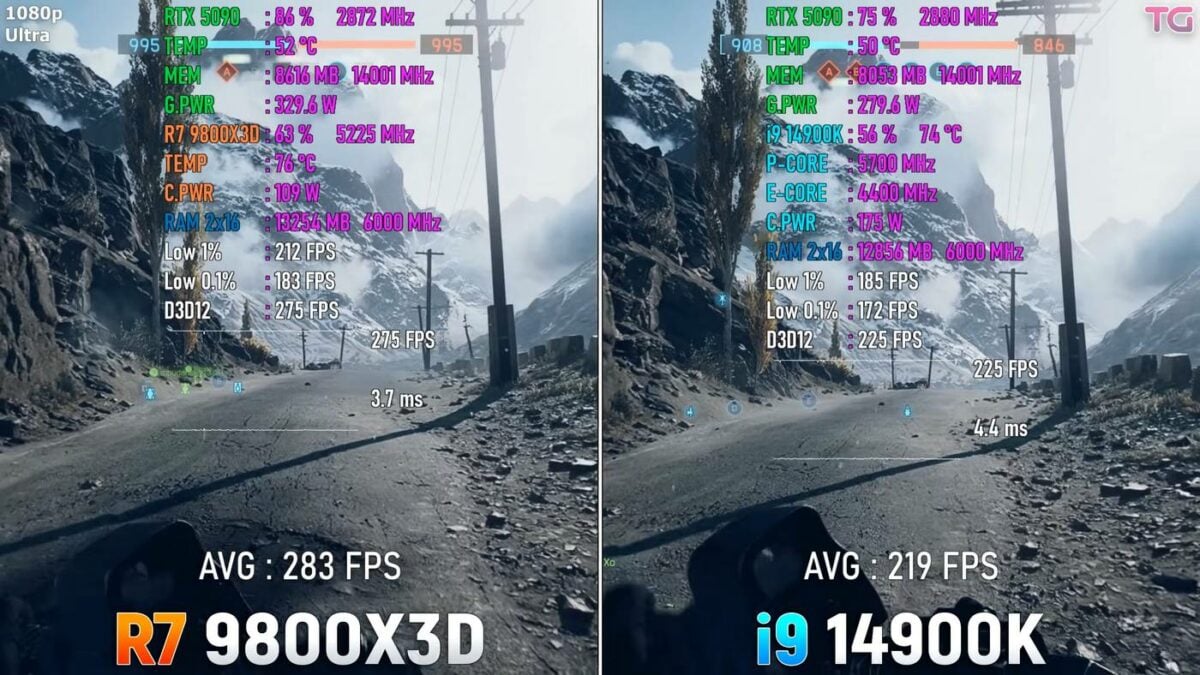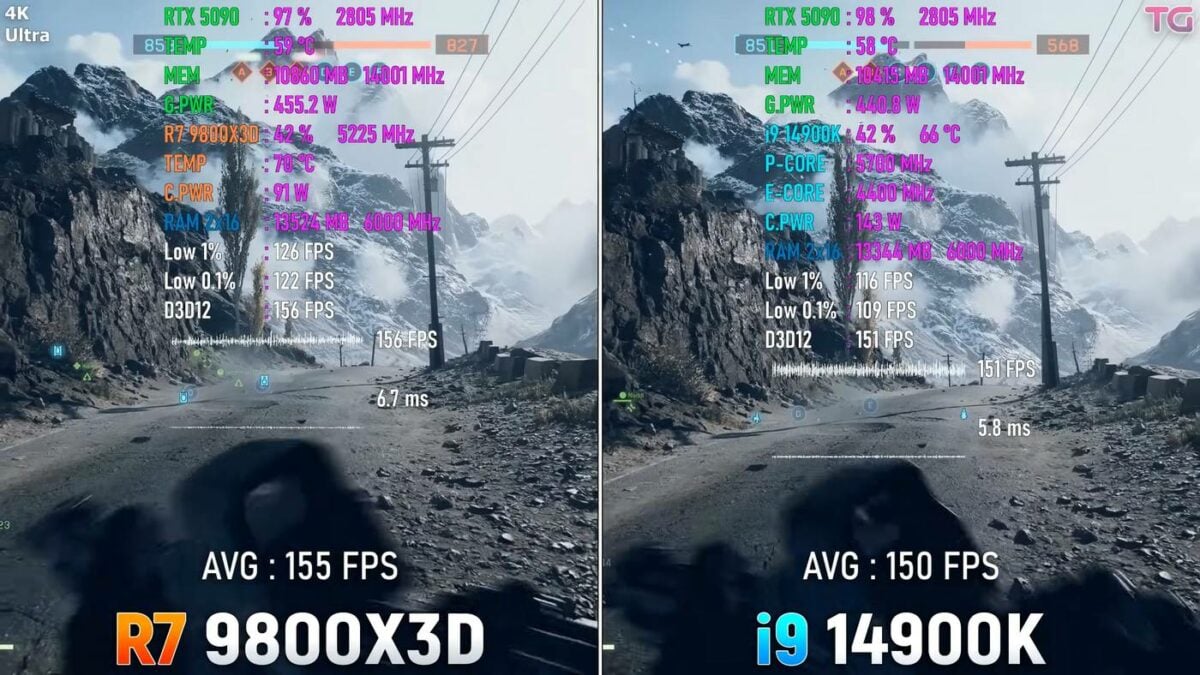Another round of Battlefield 6 Open Beta performance tests have highlighted the game’s preference for AMD’s 3D V-Cache CPUs. The Ryzen 7 9800X3D managed to stay comfortably ahead of the Core i9-14900K at 1080p and 1440p, with the gap naturally narrowing when the onus shifts to GPU at a 4K resolution.
Earlier on August 4, we had our first glimpse at Battlefield 6 performance thanks to @bruhskey on X who shared some of the first benchmarks. Back then, the game showed markedly superior performance on AMD’s 9800X3D rather than Intel’s 14900K. Today, YouTube channel Testing Games did the same comparison using the stronger RTX 5090 GPU, confirming once and for all the advantage the Ryzen 7 9800X3D has over the competition.
According to Testing Games’ findings, the 9800X3D is about 30% faster than the 14900K in Battlefield 6 at 1080p resolution. The choice of this low resolution barely tickles the GPU, making it a fine test for the CPU’s max potential. The Ryzen system was able to push beyond 280fps while the Intel one hovered near 220fps. Unsurprisingly, the gap shrank to 12% at 1440p, before disappearing at 4K. The 1% lows also showed a noticeable difference, indicating that the 9800X3D’s gaming experience is smoother.

This bottleneck situation can also be seen on the GPU load and power readings, where the Ryzen CPU loads the GPU about 15% more, pushing the RTX 5090’s consumption up by around 60W. Ironically, the Ryzen does so while taking 37% less power.
As you can guess, these become nearly identical at 4K, when both CPUs manage to fully load the GPU, pushing its consumption above 400W. I have experienced Battlefield 6’s high CPU demand firsthand with my Ryzen 7600X, where it barely crosses 100fps, despite my RX 7900 XT being capable of more.

In case you were thinking that comparing the latest Ryzen to a previous-gen Intel CPU isn’t fair, note that the Core i9-14900K trades blows with the newer Core Ultra 9 285K, often gaining the upper hand. That said, AMD’s gaming advantage may come to an end as Intel is also rumoured to be working on large cache variants of its upcoming processors. Here’s hoping the rumours hold true; as impressive as the X3D parts are, competition is always good for the consumer.


